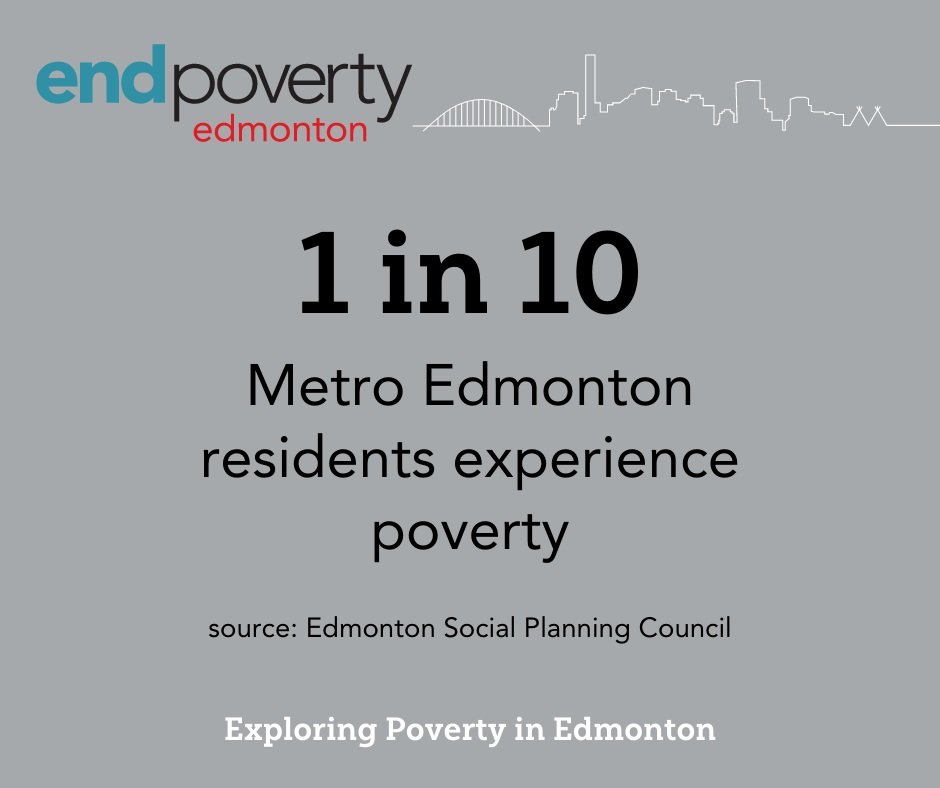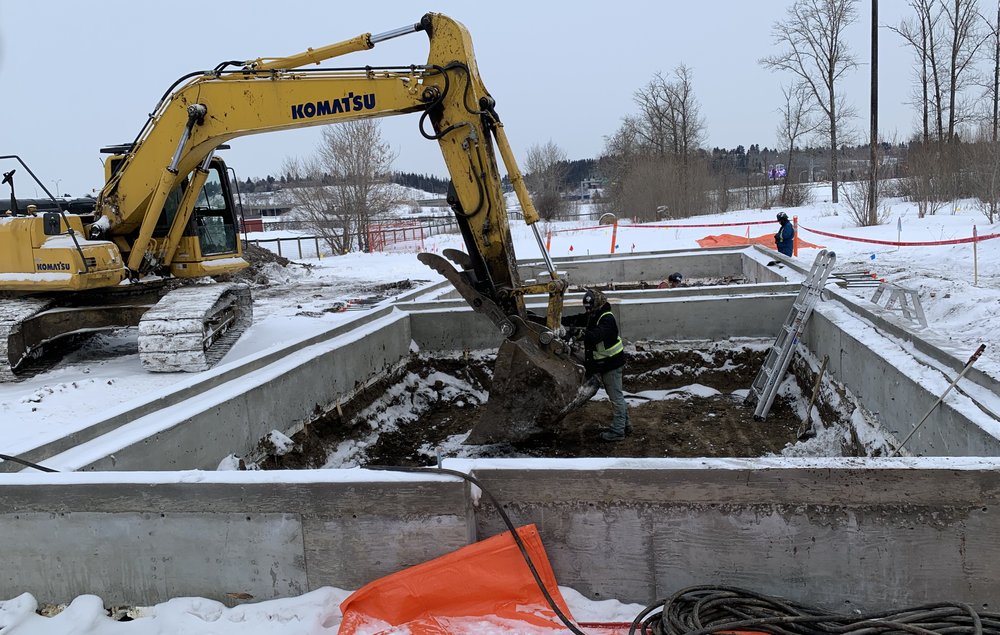Here in Alberta, we like to boast about having the fastest growing economy. We do have some of the highest incomes in the country. It's not a lie – it's true.
But while Alberta loves to talk about our booms and our job creation, it has a dirty little secret it likes to keep in the shadows.
The secret is that we have an economy that doesn't work for everyone. That 1 in 10 Edmontonians are left out from meaningfully participating in the economy (Source). That's 120,000 people in this city - more likely women, racialized individuals, Indigenous people, single adults, the disabled and single parents, who are living in poverty.
These individuals don't have enough to pay for basic living costs. It means everyday they make hard decisions about what bill to pay this month while they widdle down the food budget and sacrifice their own full tummies for their kids.
It's a snapshot that doesn't paint a very pretty picture of what our economy actually looks like.
EndPoverty Edmonton is trying to change the makeup of this snapshot in time.

Source: A Profile of Poverty in Edmonton – May 2019 Update
“We want to create an Inclusive Economy - an economy that works for everyone,” says Brooks Hanewich with EndPoverty Edmonton. “We have to ask ourselves, what do we lose? What does it cost us when we don't include a significant portion of our population in the economy?”
The University of Alberta's School of Public Health works closely with EndPoverty Edmonton to provide research and data so EndPoverty Edmonton can encourage and promote innovative approaches to creating good jobs for those left out of the job market. According to its research, income inequality has risen across Canada as a whole since the 1980's, but the disparity in Alberta, is the largest in the country - where the wealthiest 1% draw incomes 46 times over those of the poorest 10%.
Building an Inclusive Economy is about evening out that playing field: looking to those living in poverty, those in marginalized communities, and seeing their engagement as an incredible opportunity; a chance to make our economy stronger for everyone.
“To accept poverty as the status quo - as just an acceptable part of life - is an opportunity loss,” says Brooks Hanewich. “When we cut out a whole segment of the population - what skills, talents and innovations are lost because people don't have access to grow to their full potential? When they can share their talents and have a meaningful job with good pay and benefits – it allows them to further spend, give back, and participate in life and culture fully. We all lose when that doesn't happen, and the economy suffers for everyone.”
For example, National Aboriginal Economic Development Board calculated that the 350,000 Indigenous youth eligible to enter the workforce between 2016 and 2026 could boost Canada's economy by $27.7 billion annually (Source: National Aboriginal Economic Development Board. (2016). Reconciliation: Growing Canada's Economy by $27.7B). That's a lot to lose if we can't find a way to break down system barriers, address racialized experience and find a way to make a system that supports, encourages and builds a better pipeline to ensure those youth get a chance to participate fully in the economy. But we have to start now!
EndPoverty Edmonton says there are many things currently happening in the current economic climate - in part due to COVID - that is forcing people to recognize the value and need for an Inclusive Economy strategy. With high unemployment at 6.8 per cent, coupled with massive labour shortages that can't be filled with foreign workers, the business has started exploring all the ways to tap into the labour potential of these marginalized groups.
“We're really finding that companies are interested in diversifying their employment pools and also purchasing from different businesses than they have before. And while there are worker shortages at the moment, we're also finding many companies, who just think it's the right thing to do,” says Susannah Cameron with EndPoverty Edmonton.
EndPoverty Edmonton works to facilitate and bring together groups interested in the Inclusive Economy conversation. It encourages innovative approaches to creating good jobs for a broader range of people. One such tool is social procurement.

Construction at the kihciy askiy ceremony site
Social procurement is the idea that business can play a huge role in improving the lives of people - just through the way it hires and spends. Implementing social procurement policies that require contractors to hire or buy from marginalized groups, is a powerful way that businesses can be part of building an Inclusive Economy.
“Social procurement policies ensure companies must demonstrate how they can add social value to the work they will be undertaking for a contract,” says Susannah Cameron with EndPoverty Edmonton. “For example, they could partner with an organization that helps new Canadians find work or they could ensure they are paying all their employees a living wage. EndPoverty Edmonton's work helps companies contribute to ending poverty in our community,” she says.
As such, EndPoverty Edmonton is a connector and brings together companies, trainers, unions and large employers to work on overcoming systemic barriers, such as racism, and helps diverse workers succeed. More and more EndPoverty Edmonton is being approached by companies who recognize it is in their best interest to reach into these communities and spend in ways that benefit those who have been left out of the economy or are struggling through no fault of their own.
At the end of the day - building a great city means building a strong economy for everyone and to do that – we have to look at it from a people-first perspective - not a business-first perspective.
“Economists are starting to think differently about the way we build an economy., “ says Brooks Hanewich. “Traditionally we've thought about building an economy by lowering taxes and trying to attract business to come to Edmonton. What we found is actually the way to build an economy that attracts businesses, is to actually build up the talent pool, build the labour pool up. There's a reason why Silicon Valley exists where it exists because it has Stanford and the labour pool of people there that companies can utilize as their tech-skilled workforce. So I think if Edmonton is really serious about attracting businesses, it needs to focus on local people first and a great differentiator is a city that has a strong inclusive economy.”

